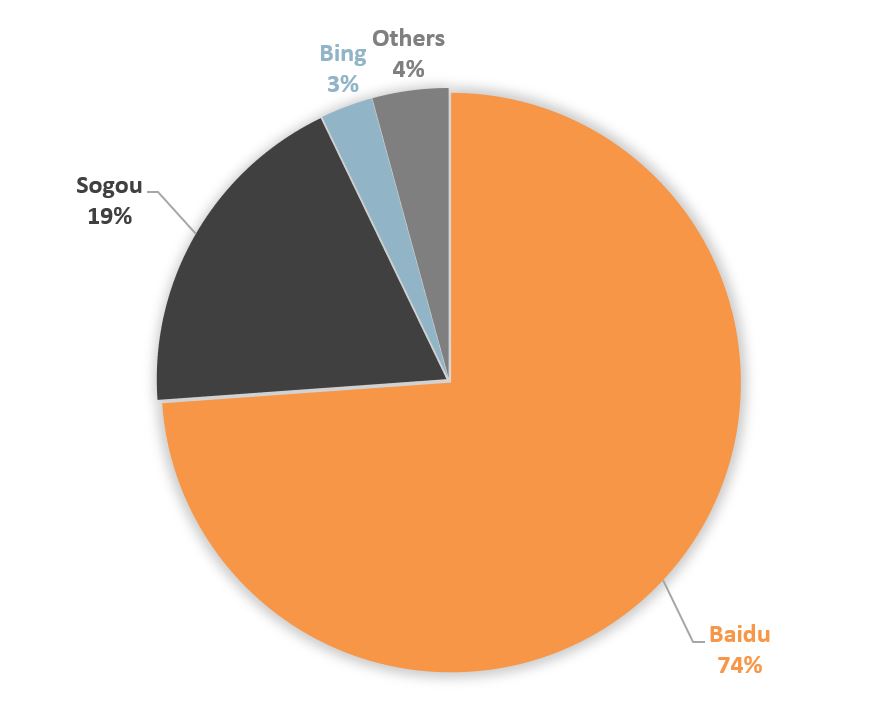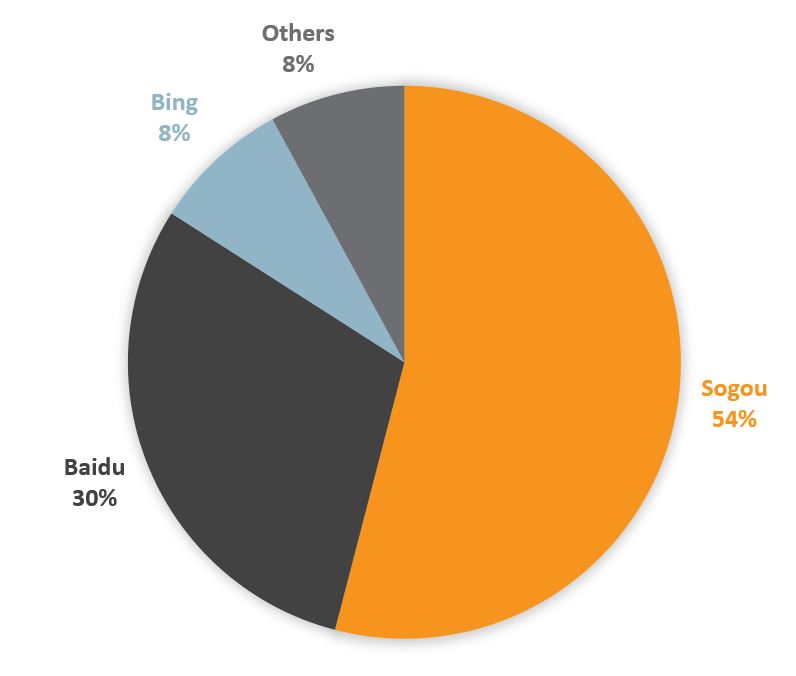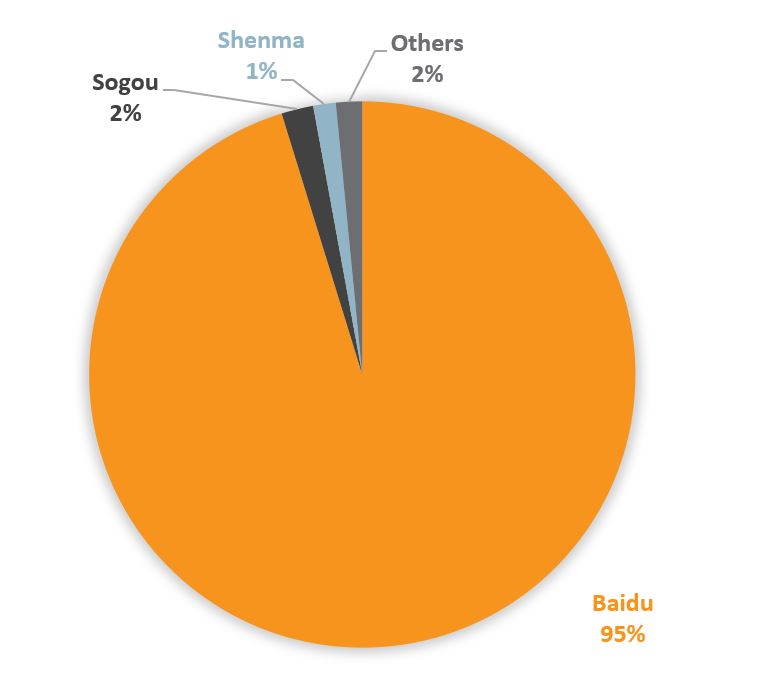MOST POPULAR SEARCH ENGINES IN CHINA – 2021
78% of China’s whopping 989 million internet users leverage search engines to find and buy the products and services that fuel the world’s highest-spending consumer market.
But the search engines in China are unique from anywhere else in the world.
With Google non-existent, local giants like Baidu and Sogou constantly battle for user loyalty and market share.
In this article, we look at the most popular Chinese search engines and how to connect with China’s massive audience, who are remarkably savvy in their search and e-commerce habits.
What is the most popular search engine in China?
Baidu is the most popular search engine in China, with over 70% of the market share. It is often referred to as “China’s Google”. Baidu offers a variety of features, including search, maps, news, and translation. It also has a number of unique features, such as the ability to search for information in Chinese dialects.
Sogou is the #2 most popular search engine in China, with a 18.99% market share across all devices.
Given the government-imposed Great Firewall, most western platforms are banned in China so local search engines reign supreme.
TOP SEARCH ENGINES IN CHINA BY MARKET SHARE
CHINA’S SEARCH ENGINE MARKET SHARE (ALL DEVICES)
- Baidu: 73.86%
- Sogou: 18.99%
- Bing: 2.91%
- Others: 4.24% (Google, Haosou, Shenma etc.)
Source: StatCounter (as of Jul 2021)
But despite Baidu’s overall market dominance, the breakdown by desktop and mobile tells a different story.
CHINA’S SEARCH ENGINE MARKET SHARE (DESKTOP)
- Sogou: 54.04%
- Baidu: 30.01%
- Bing: 8.03%
- Others: 7.92% (Google, Haosou, YANDEX etc.)
Source: StatCounter (as of Jul 2021)
- Sogou commands a 54.04% market share among Chinese desktop users, which has steadily increased after Tencent announced its acquisition of the search engine in 2020.
- Interestingly, Baidu only sees a 30.01% market share on desktop.
CHINA’S SEARCH ENGINE MARKET SHARE (MOBILE)
- Baidu: 95.23%
- Sogou: 1.89%
- Shenma: 1.33%
- Others: 1.55% (Haosou, Google, Bing etc.)
Source: StatCounter (as of Jul 2021)
When looking at mobile:
- With a 95.23% market share, Baidu dominates mobile search.
- In second place is Sogou, which, given its insignificant mobile market share of 1.89%, is not a threat to Baidu on mobile.
So, across all devices, Baidu and Sogou are the two most popular search engines in China, granting brands unparalleled access to China’s booming internet population hungry for content and technology.
And although Baidu and Sogou can pose a steep learning curve for international brands stepping foot into China, the investment is well worth it.
To help you reach this massive market potential, let’s explore the recent trends, market shares, as well as similarities and differences of Baidu vs Sogou so that you can optimize for both and maximize your digital presence in China.
BAIDU VS SOGOU: INTRODUCTION TO THE MOST POPULAR SEARCH ENGINES IN CHINA
WHAT’S UNIQUE ABOUT CHINA’S SEARCH MARKET?
China has developed its own platforms that understand unique Chinese language, culture, and search intent. Localizing content for Chinese platforms is critical to connecting with Chinese users—knowing and actioning upon how and why they search will get you found.
And with global search engines banned, local giants Baidu and Sogou are the top search engines in China, with both providing valuable information to users through websites, news, images, videos, blogs, and much more.
Baidu even has its own properties, such as Baidu Baike (the Chinese answer to Wikipedia), Baidu Zhidao (the Chinese answer to Quora), Baidu Images for visual search, and more.
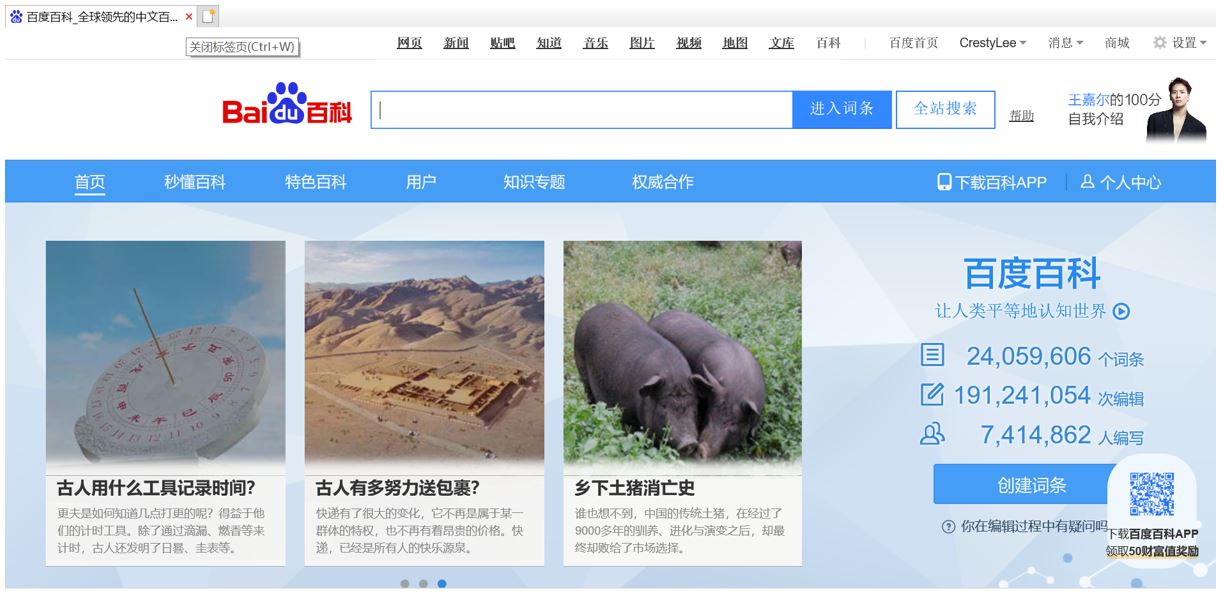
Sogou also has its own properties, and its inclusion within the Tencent ecosystem means that users can view content—like articles, images, music tracks, and videos—from WeChat on its SERP
And Sogou’s inclusion of content from WeChat, China’s #1 social platform, suggests it is very much looking to enlarge its market share among mobile users.
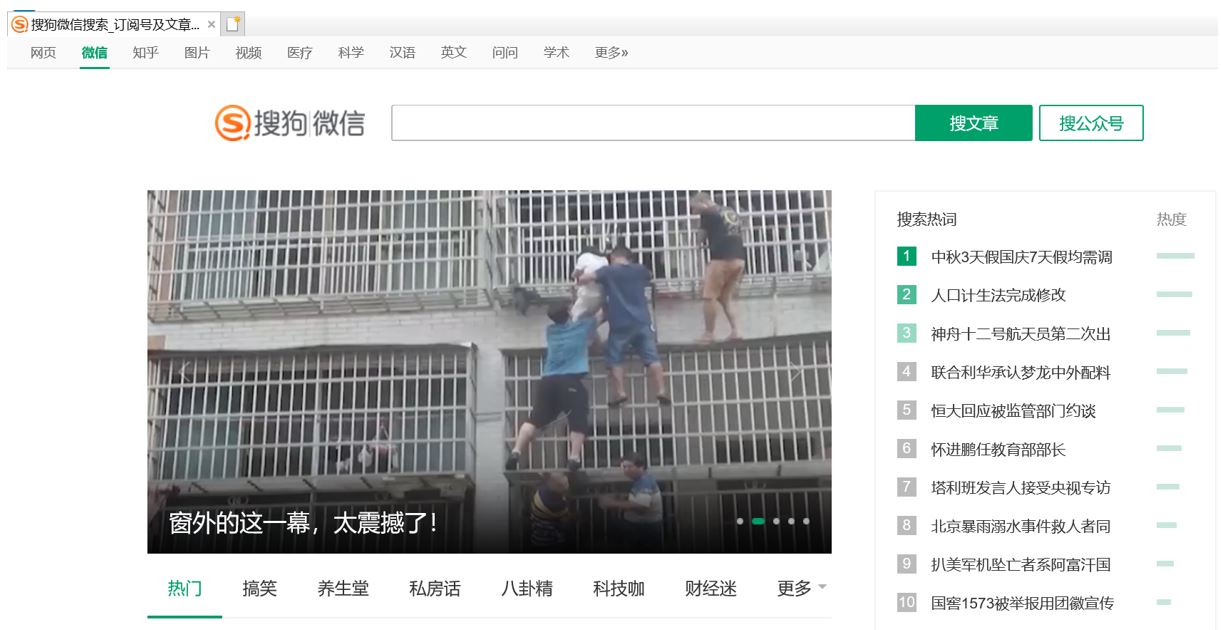
TOP SEARCH ENGINES IN CHINA: RECENT TRENDS & PAST DATA
SEARCH ENGINE MARKET SHARE IN CHINA
Since 2018, Baidu’s market share on desktop has been on a continuous downtrend, dropping sharply from 64.64% to 48.32% in 2019 alone.
This downtrend was likely catalyzed by a viral article published in early 2019 called Search Engine Baidu: Already Dead, which criticized Baidu’s tendency to direct more organic traffic to its own property, Baidu Baijiahao.
With Baidu’s search experience being questioned, Sogou’s market share increased dramatically from 31.22% in 2019 to 54.04% in 2021. In July 2020, Tencent also announced its acquisition of Sogou (an ongoing process but close to completion), which could be a factor for its rising popularity.
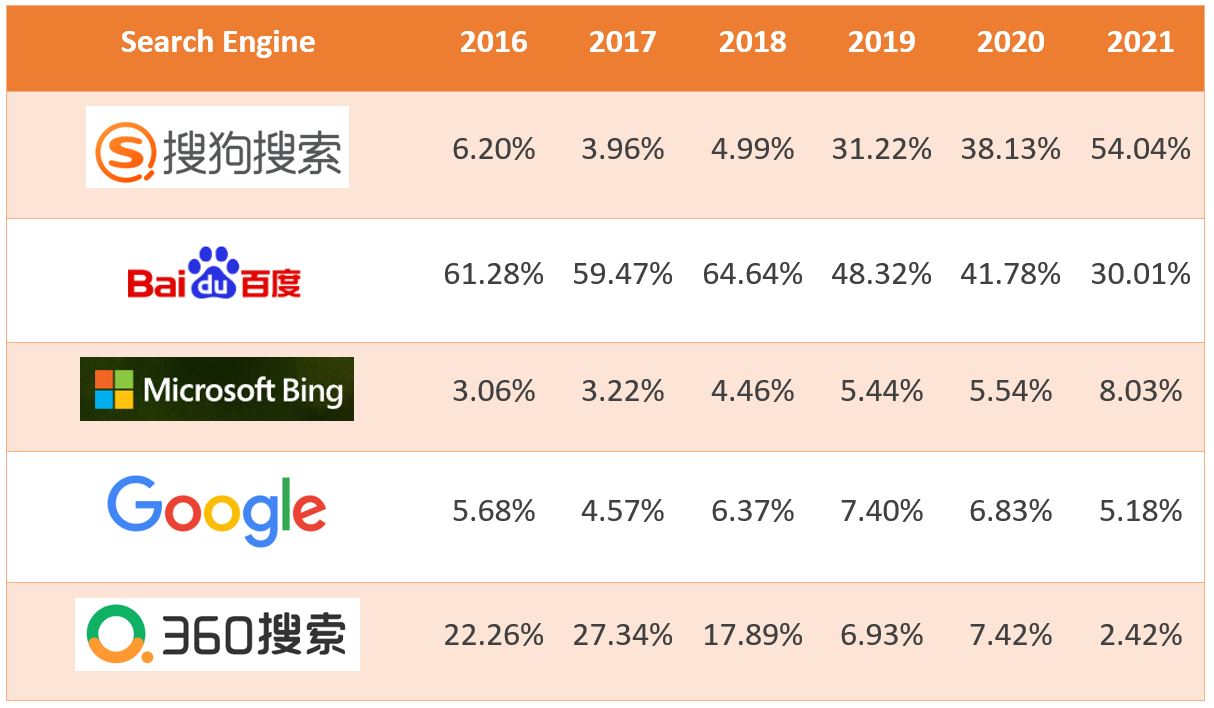
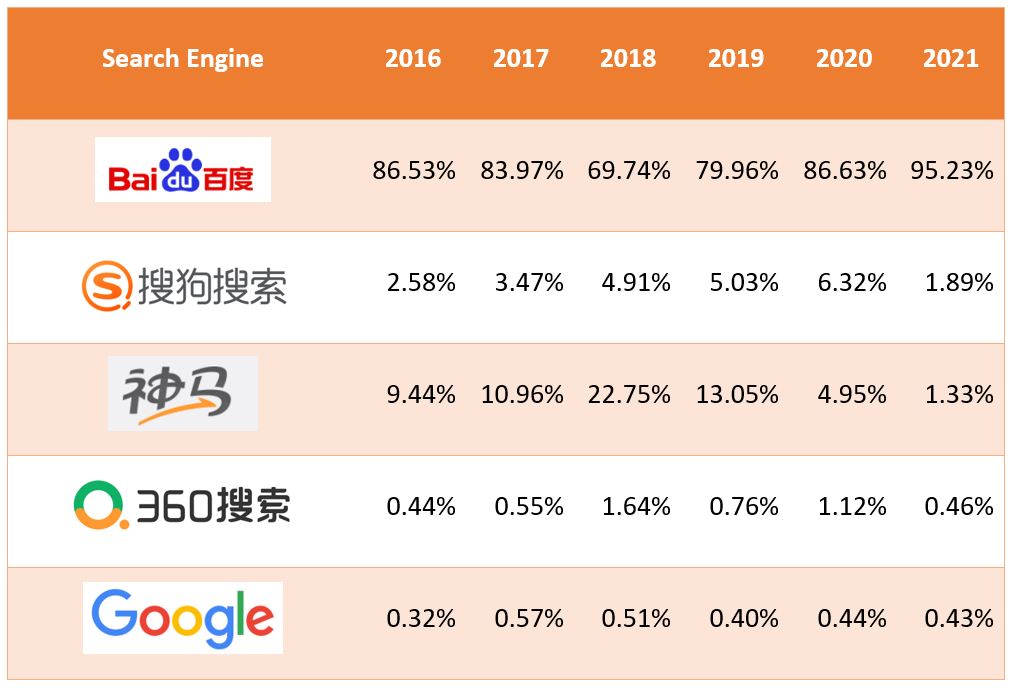
TOP SEARCH ENGINES IN CHINA: BAIDU VS SOGOU
BAIDU VS SOGOU: SERP RANKINGS
Both Baidu and Sogou share similar algorithms and favor displaying results from their own properties higher on their SERPs.
For instance, searching “旅游景点” (travel attractions) on Baidu and Sogou resulted in Baidu Maps and Sogou Baike ranking first on the SERPs, respectively.
At the same time, Baidu regularly integrates video and product search results on its SERP, such as the video that ranked third for “旅游景点” (travel attractions).
And since Sogou is powered by WeChat, they share the same content for certain keywords, such as the related articles from WeChat—distinguished by a green logo tag—that ranked second for “旅游景点” (travel attractions).
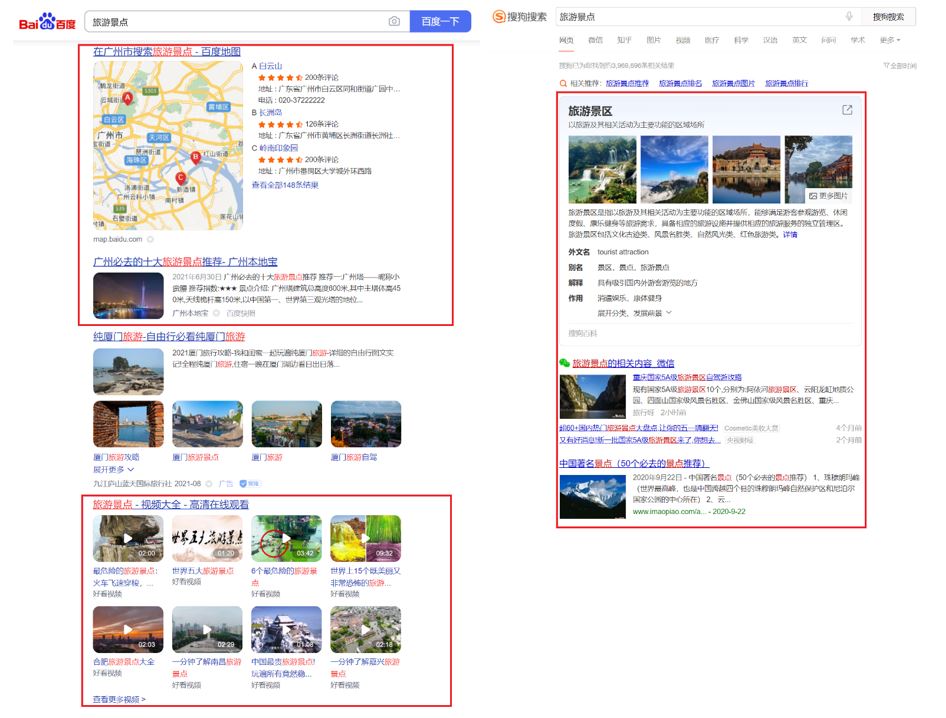
BAIDU VS SOGOU: SERP STRUCTURE
To maximize page load speed and improve user experience, both Baidu and Sogou display up to 10 organic results per page by default.
The screenshot below highlights how the SERPs for both search engines are structured:
- Organic search results, which are similar across both SERPs, are outlined in red
- Paid search ads are outlined in green
- Vertical search results (based on topic, media type, and content genre) are outlined in blue
- Results from Baidu- and Sogou-owned properties like Baidu Baike, Sogou Zhidao etc., are outlined in purple
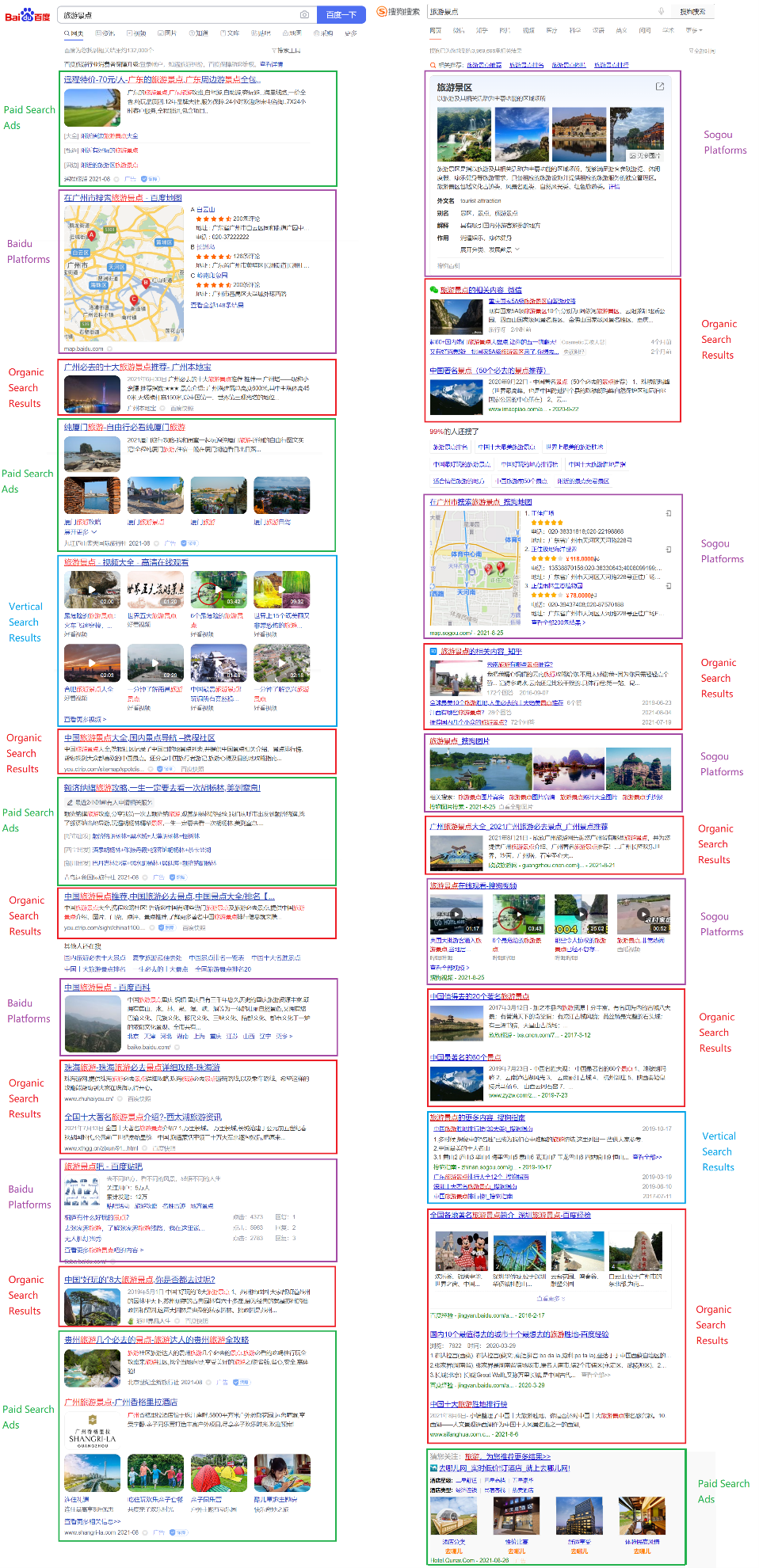
Note: Baidu lets users change the default settings to display up to 50 results on the SERP. But this customizability is currently not available on Sogou.
BAIDU VS SOGOU: SERP SNIPPETS
On both SERPs, organic results generally feature a title tag, followed by a simplified meta description with information about that page’s content, then the landing page URL or the name of its Baidu Baijiahao (or publisher number).
In some cases, there is a feature image to the left of the meta description.
Baidu and Sogou have similar organic listings on their SERPs. On both, the search term (the example below shows “Swarovski” as the search term) is in red to highlight the relevance of the page’s content to the search query.
And results from official websites feature an icon showing “官方” (official) after the title tag, which appears blue on Baidu and green on Sogou. Websites that haven’t been verified as official by the respective search engines will not have this icon.
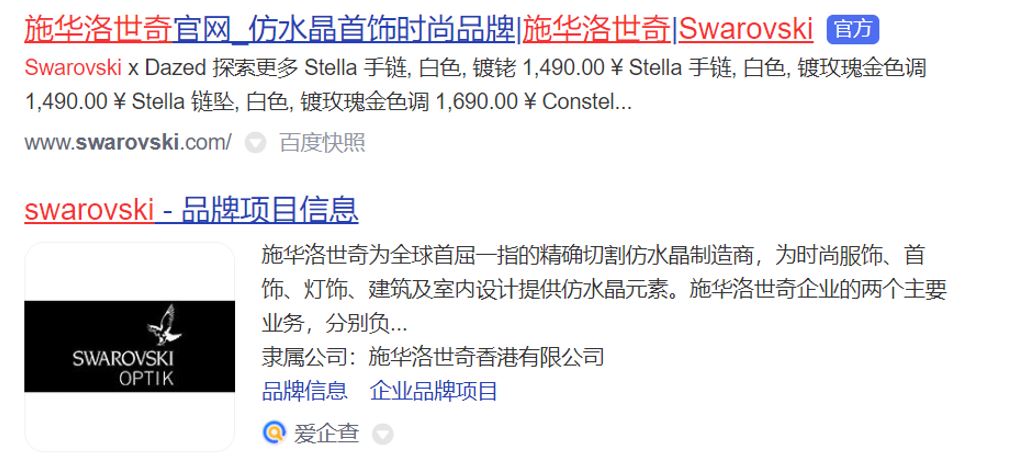
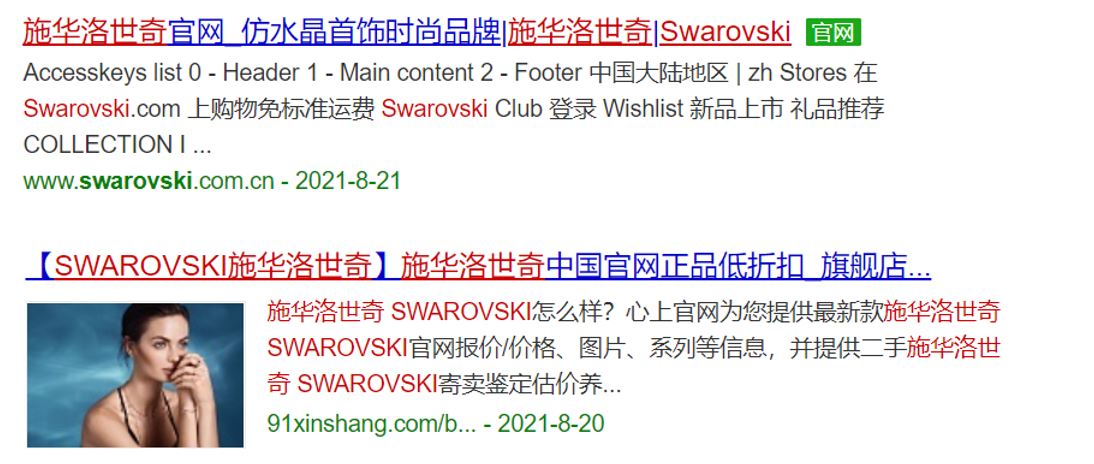
BAIDU VS SOGOU: PAID SEARCH DISPLAY
Both Baidu and Sogou have ad sections that appear on their SERPs, featuring up to 5 ads above and below the organic section.
But while ad sections on Baidu can also feature in-between organic results, Sogou does not support this. Baidu also has various ad formats compared to Sogou’s one.
Learn more about paid search in China.
WHAT IS THE MOST POPULAR SEARCH ENGINE IN CHINA?
Baidu is the #1 most popular search engine in China with a 73.86% market share. Sogou is the #2 most popular search engine in China with a 18.99% market share.
However, as Baidu continues to blend organic and paid results on their SERP, users who prefer a simpler search experience may turn to Sogou which, given its current trajectory, should be a stronger competitor for Baidu in the future.
Ultimately, succeeding in China means localizing for Chinese users and understanding both Baidu and Sogou’s interpretation of SEO best practices and incorporating them within your overall SEO strategy.



